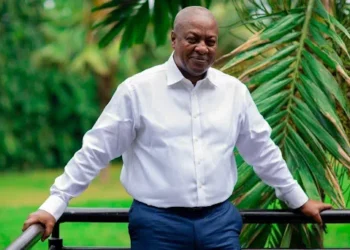The Driver and Vehicle Licensing Authority’s (DVLA) newly appointed Chief Executive, Julius Neequaye Kotey, has come under fire from former NEIP CEO Kofi Ofosu Nkansah, who accuses him of making “deceptive pronouncements” about the Authority’s revenues.
According to the National Entrepreneurship and Innovation Program (NEIP) CEO, recent media engagements by the DVLA boss have been not only unfortunate but also misleading and problematic at best.
At the heart of Nkansah’s concern is the claim that the DVLA is a revenue collection agency that operates at a structural disadvantage.
“Yes, the DVLA, as a revenue collection agency, charges for every service it renders to the public. Indeed, its charges are legislated by parliament through the Fees and Charges (Miscellaneous Provisions) Act.”
Kofi Ofosu Nkansah
However, these charges, Nkansah pointed out, are insufficient to cover the actual cost of services rendered. Worse still, the DVLA has to surrender significant portions of its revenue to the government.
“Until recently, 40% of all revenue from driver license services was being paid to the government’s chest,” he said, noting that the Authority was left with only 60% to run its operations.

Even more alarming is the financial arrangement tied to vehicle-related services. “DVLA is required to pay 85% of all its revenue from vehicle-related services (registration, road worthy [document], etc) to the Road Fund and retain only 15%.”
DVLA Operates At a Loss
Furthermore, Kofi Nkansah explained that the structure of DVLA’s financial operations forces the authority to run at a loss, often relying on revenue from unrelated services to bridge the gap.
Over time, he noted, the authority has been unable to recover the full cost of delivering its core services, resulting in borrowing from banks and dependence on supplier credit to stay afloat.
He also revealed that various attempts were made by previous administrations to reverse the situation through engagements with the Ministry of Finance, all of which proved futile.
Against this backdrop, he believes that Mr. Kotey’s recent narrative about financial mismanagement at the Authority is disingenuous.
“Unfortunately, the young Chief Executive, who is aware of these facts, presented the situation as though it was a case of mismanagement.”
Kofi Ofosu Nkansah

Nkansah went further, questioning Mr. Kotey’s apparent shock at discovering DVLA’s financial situation. “If he is surprised at the figures he’s seeing, then I bet he would have collapsed if he took over management in 2017.”
The most striking aspect of Nkansah’s statement centers on a longstanding legal battle between a supplier and the DVLA, dating back to President John Mahama’s first term.
At the heart of the case is a GHS 100 million judgment debt. Nkansah criticized the current DVLA leadership, arguing that rather than pursuing the case to shield the authority from a potentially crippling financial blow, the young Chief Executive has instead taken to the airwaves, publicly discussing and promoting the issue.
Accordingly, he hinted at possible political interference, suggesting that the supplier involved has close ties to the Chief Executive’s influential mentor, Ibrahim Mahama.
He implied that this connection could be influencing how the matter is being handled.
DVLA’s Operations, Leadership Critiqued
Kofi Nkansah also took issue with some of the touted reforms under the new leadership, including a proposed 24-hour shift system and claims about poor infrastructure at DVLA’s head office.
According to him, “the DVLA’s printing team has been running shifts since 2020.…nothing new.”

In what reads like a parting shot and an unsolicited piece of career advice, Nkansah urged Mr. Kotey to focus. “My advice to the young man, Mr. Julius Neequaye Kotey, is to get serious and focus on the task of managing one of Ghana’s finest state institutions.”
He added that the new Chief Executive has a golden opportunity to write his name in gold but warned that media gimmicks will not help. “The earliest he sat down to work, the better it would be for him and the Government he serves.”
While it’s not unusual for incoming executives to highlight challenges inherited from their predecessors, Nkansah’s argument strikes at the heart of Ghana’s broader public service narrative: perform, don’t posture.
If the goal is truly to change the narrative, leaders of public institutions and agencies must go beyond rhetoric—they need to deliver results through concrete action.
READ ALSO: GSE Records Tepid Trading Session with Ghana Oil Company as Sole Gainer





















